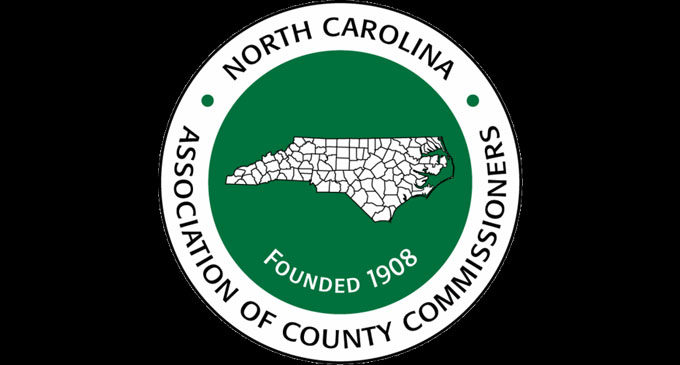NCACC board of directors discusses impact of COVID-19 on counties during virtual meeting

REMOTE, N.C. –On June 24 members of the North Carolina Association of County Commissioners (NCACC) board of directors met virtually via teleconference to conduct business and discuss priorities for counties and challenges related to COVID-19.
NCACC President Kevin Austin, who serves as the chair of the Yadkin County Board of Commissioners, presided over the meeting. He discussed the recent release of the Pathways Initiative Task Force report, which guides counties on ways to advance Austin’s presidential initiative to reduce the rate of disconnected youth throughout North Carolina ages 16-19 who are neither working nor in school.
The Pathways Initiative Task Force report captures months of work by the task force, which studied factors leading to youth disconnection and successful youth engagement programs. The report recommends an action plan for counties to promote youth engagement and help disconnected youth find a path toward meaningful work or higher education.
President Austin thanked the task force for their work and encouraged the board to lead local youth engagement efforts in their respective counties. “The Pathways Task Force report is now available online. I encourage all of you to look at it and start setting up meetings with your local school board members, superintendents, community college and university representatives, and other local leaders to explore the report’s recommendations and decide which youth engagement efforts might work well in your community,” urged President Austin.
NCACC staff briefed the board on the economic impacts that COVID-19 mitigation measures are having on counties throughout the state. According to the most recent reporting by the North Carolina Department of Revenue, counties lost about 15% in sales tax revenue during the first full month of the Stay-at-Home Order. Counties project significant revenue losses to continue well into the future.
By law, counties are required to balance their budgets and are responding to budget uncertainty in various ways. Among other things, counties plan to impose hiring freezes, cut vacant positions, cut fund balances, freeze capital projects, and other discretionary spending. Many counties also plan to reassess their budgets in six months when the revenue picture becomes clearer.
Considering county budget impacts, NCACC sent a letter to the North Carolina General Assembly asking state lawmakers to quickly appropriate the $150 million in federal Coronavirus Relief Fund dollars the state legislature is currently holding in reserve for local governments. Appropriating these designated funds in a timely manner will help counties budget and use the earmarked funds before they expire on December 30, 2020.
Last month, the General Assembly stipulated the federal funds could not be distributed to local governments until Congress amends the CARES Act to allow Coronavirus Relief Fund appropriations to be used for revenue shortfalls. Given the delays in passing additional federal coronavirus relief and partisan obstacles in Washington, counties are urging state lawmakers to ease this state-imposed restriction on local government assistance before adjourning or recessing the legislative short session.
The board also received an update from Matthew Chase, executive director of the National Association of Counties (NACo) on federal legislative developments and national trends on various county issues. Chase shared that NACo’s research shows counties nationwide are facing about $140 billion in revenue loss and expenses due to COVID-19, noting that some counties have had to furlough as much as 30-50% of their workforce.
NCACC and NACo are advocating for Congress to include flexible and direct assistance to counties in the next package of federal coronavirus relief. Chase says assistance to local and state governments is front and center for the next round of negotiations on federal coronavirus legislation.
“Our job is to represent counties as institutions and make sure policymakers understand the roles and responsibilities of counties in public health and the current pandemic. We have been an aggressive voice advocating for an equitable distribution for counties, the ability to use federal assistance for economic impacts including lost revenue, and strong accountability standards,” said Chase.
Finally, NCACC staff provided updates on the latest legislative developments at the General Assembly, encouraging commissioners to express their support for House Bill 1225 – Education & Transportation Bond Act of 2020, which passed the House and awaits consideration by the Senate. The bill would authorize a $3.1 billion bond proposal that, if approved by voters during the general election later this year, would provide $1.05 billion for K-12 public school capital outlay projects, and $300 million for community college capital outlay projects.
Before the pandemic hit, counties were already struggling to address the staggering backlog of school construction projects statewide, estimated to total over $8.1 billion. Now, amid declining revenues, budget austerity measures, and historically low interest rates, there has never been a better time to assist counties in meeting public school capital needs.
The North Carolina Association of County Commissioners (NCACC) is the official voice of all 100 counties on issues considered by the General Assembly, Congress, and federal and state agencies. The association provides expertise to counties in the areas of advocacy, research, risk management, and education, and leadership training.














